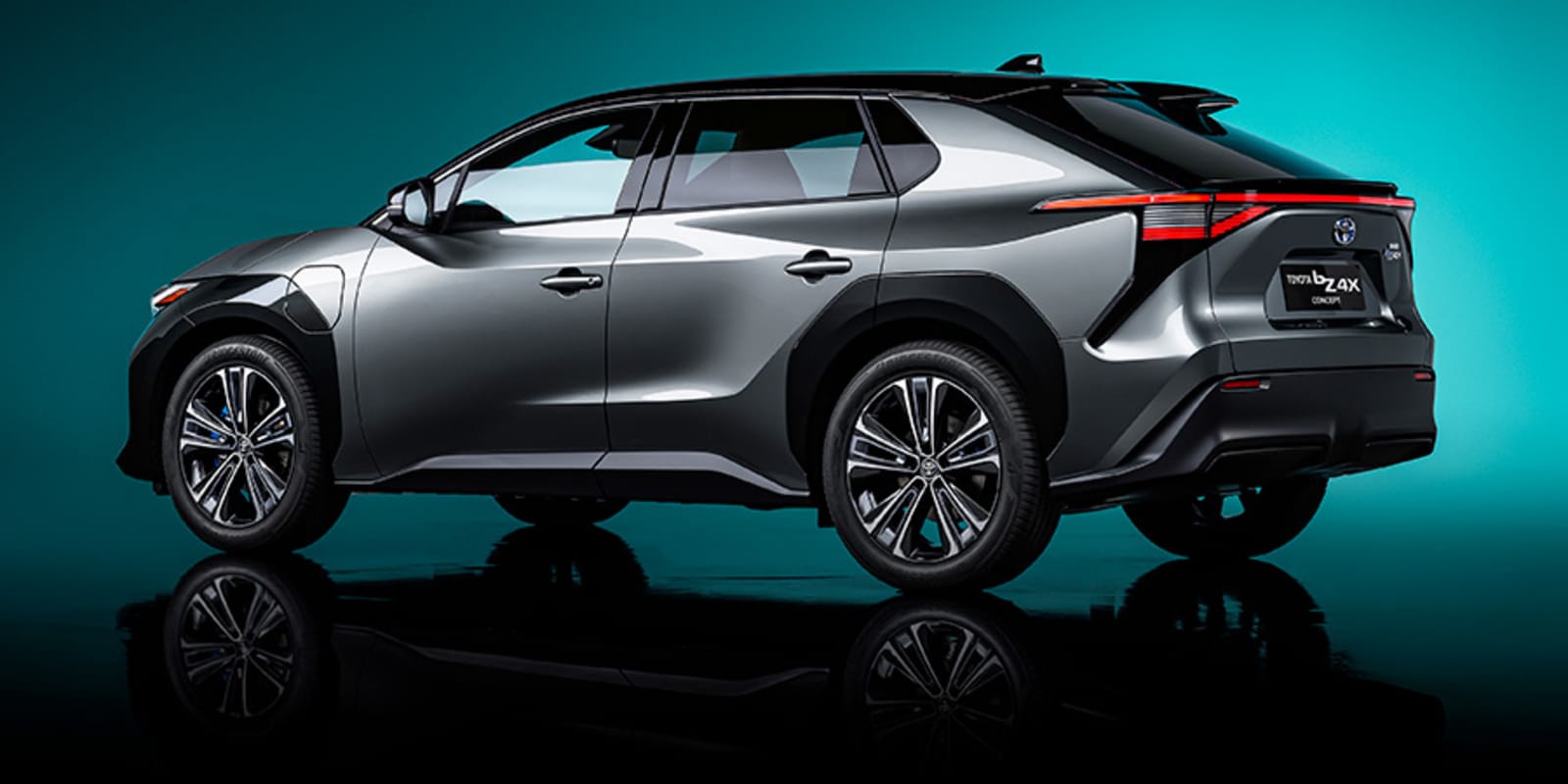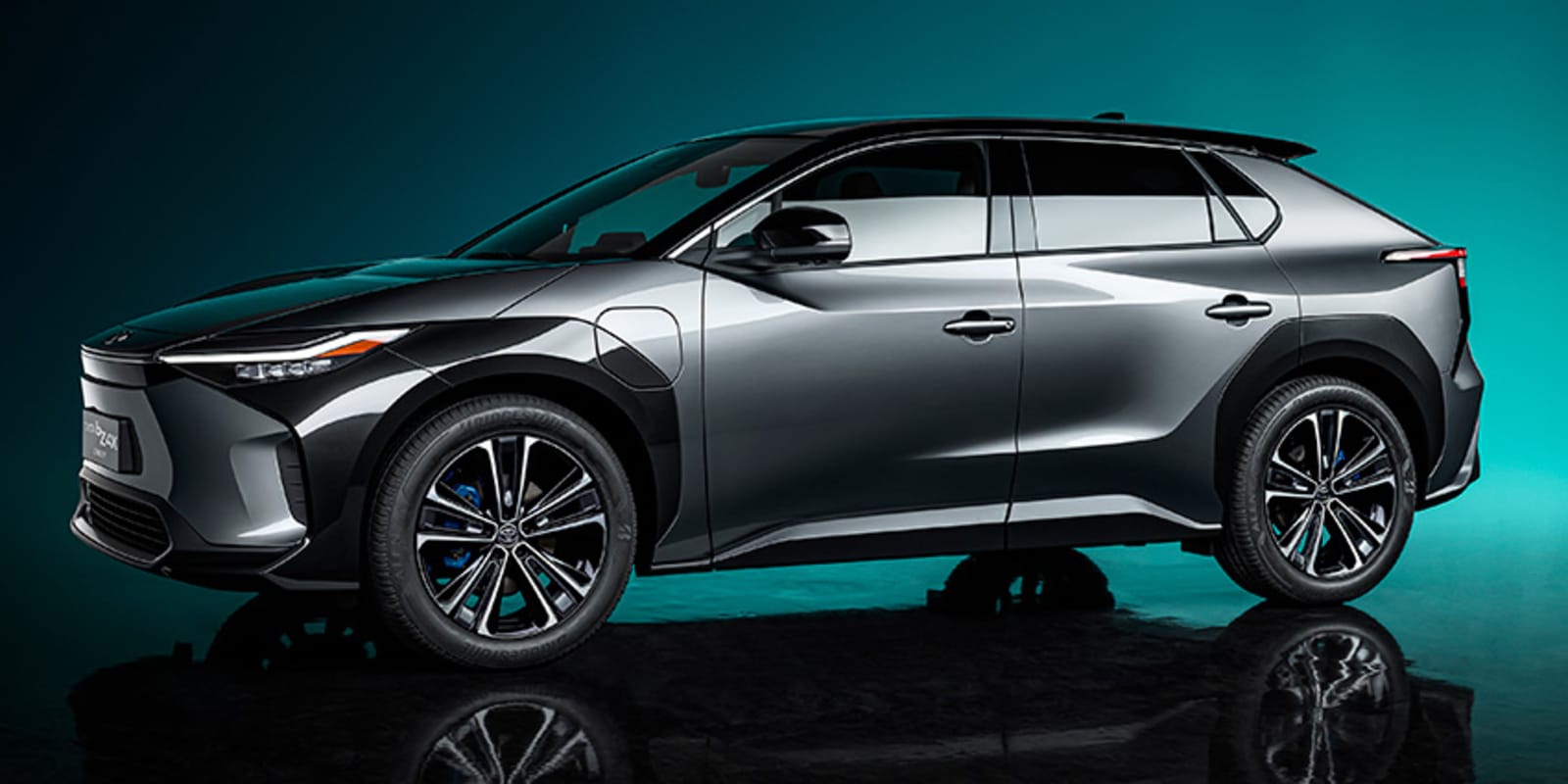The first mass-produced electric vehicle, the bZ4X, comes from Toyota
Toyota has reached an important milestone with the announcement of details about its first mass-produced electric vehicle. It was not until Friday that Toyota revealed more information on the bZ4X despite debuting the concept at the Shanghai show in April. Toyota has taken a significant step forward when it comes to battery-powered electric vehicles.
The new car represents a shift for Toyota, a company that has primarily relied on hybrids in the past. Previously, Toyota focused on hybrid technology instead of purely electric cars. Even though it is not Toyota's first electric vehicle - that honor was held by the short-lived RAV4 EV - it will be the first electric vehicle that directly competes with Hyundai Ioniq and Tesla Model Y.
The company already makes an electrified hydrogen fuel cell vehicle, the second-generation Mirai. Europe will be able to order the bZ4X with a reservation-based system starting on the 2nd of December. According to the company, the model will be available in "all regions" starting from the middle of next year. However, no schedule, price, or variant details have been announced. Thus, Toyota is expecting to have 70 electrified vehicles in its arsenal by 2025. It is expected that Subaru will launch its own electric vehicle in the near future, which played a crucial part in the bZ4X development.
The bZX4 will be available in Australia by late 2022. Due to Toyota's popularity in Australia, this model will likely help Toyota maintain its leadership position in the electric vehicle market. Toyota's business model is expected to beat its competitors in a political climate devoid of clear leadership. Almost one-third of Toyota's hybrid vehicles were sold in Australia this year. The bZ4X is the first of 15 zero-emission vehicles Toyota plans to offer.
In addition to optional rooftop solar panels, the bZ4X SUV comes in front-wheel drive or all-wheel drive. All-wheel-drive models with two 80kW motors can reach 100km/h in 7.7 seconds thanks to their 160kW and 336Nm of torque. The 71.4kWh battery will provide 500km of range on both models with a top speed of 160km/h. Batteries can be charged to 80% with a 150kW DC charger from Toyota within 30 minutes.
A rooftop solar panel system can be used when driving or parked to generate energy. This technology allows cars to be charged when parked or when there are not enough charging stations available, as stated by Toyota. Using these solar panels for the car, the vehicle will be able to drive 1800 kilometers more each year.
The specs for the bZ4X are it measures 4.69m long, 1.65m high, and 1.86m wide. Despite the lack of detail on the vehicle's interior, it is interesting to note that its most exciting feature is the steering-by-wire system that does not employ a mechanical connection between the steering wheel and the tires. Since the tires will not vibrate through the steering wheel, the driver will only feel the road, similar to modern jet aircraft technology that uses fly-by-wire.
As with Tesla's Model S, Toyota's bZ4X will have an optional yoke steering wheel. Toyota's version of the wheel will have a 150-degree lock, which eliminates hand movements while turning. This, in turn, will give the vehicle added safety.
Generally speaking, this vehicle does not seem to disappoint. This is, after all, a Toyota. Many people in the market for a new vehicle will likely choose Toyota's new electric vehicle because of its reliability, affordability, and overall good reputation. The transition to electric vehicles aims to create a more environmentally friendly transportation system at a more beneficial price for the consumer. You can expect the new bZ4X to rival its competition in terms of price and performance.
Written By
autoMAG



